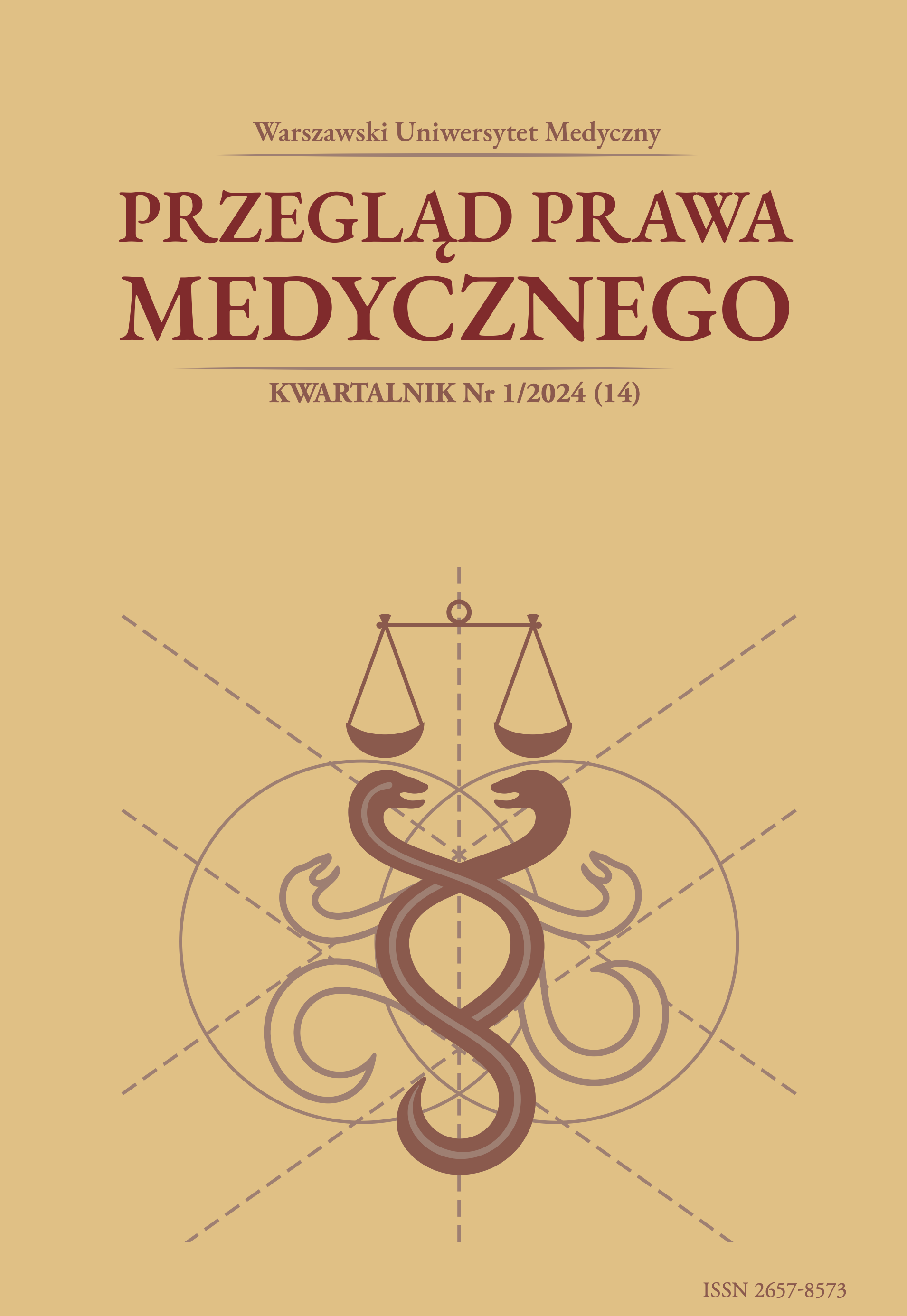Abstract
In the judgment of 14th December 2023 the ECHR declared unlawful the interference in the applicant's private life due to the tightening of the abortion law as an outcome of the verdict of an improperly appointed constitutional court. It is the first result of the wave of complaints that the Court received after the so-called embryopathological premise for abortion was repealed by the TK. The powerful positive impact it could potentially have on the situation of Polish women should not be underestimated. On one hand, it opens the way for the direct victims of the 22 October 2020 ruling to pursue financial claims in Strasbourg. In addition, it obliges courts to refuse to take into account faulty judgments of the Constitutional Tribunal when adjudicating. Finally, the resulting obligation to implement the ECtHR judgment may provide an incentive for statutory liberalisation of the Polish abortion law. However, when justifying its decision on the violation of Article 8 ECHR, the panel focused on matters far from the essence of the question of reproductive rights. In this regard, it is natural to feel dissatisfied by the fact that after years of silence, the Court did not take the opportunity to update its position on the margin of appreciation of Member States regarding the way in which abortion is legally regulated. The strong focus on constitutional law issues, nevertheless, means that the M.L. judgment, rather than in the context of the ECtHR's decisions on abortion, should be seen as a continuation of a line of jurisprudence focused on the consequences of defects in the process of judicial appointments. Disappointing – albeit for other reasons – is also the Court's dismissal of a complaint by Ms. M.L. to the extent that she alleged a violation of the prohibition of torture and inhuman or degrading treatment by Poland. The ruling on this subject was, indeed, not preceded by a detailed analysis of the circumstances of the case, which would have made it possible to determine whether the "minimum level of severity" had been achieved, and therefore cannot be considered truly justified.
References
Adamus R., Przesłanka eugeniczna (embriopatologiczna) jako przesłanka legalnego przerywania ciąży – glosa do wyroku Trybunału Konstytucyjnego z 22.10.2020 r. (K 1/20), Palestra, 11/2020, https://palestra.pl/pl/czasopismo/wydanie/11-2020/artykul/przeslanka-eugeniczna-embriopatologiczna-jako-przeslanka-legalnego-przerywania-ciazy-glosa-do-wyroku-trybunalu-konstytucyjnego-z-22.10.2020-r.-k-1-20.
Foucault M., Nadzorować i karać. Narodziny więzienia, Warszawa, 2020, s. 197.
Fundacja im. Stefana Batorego, Stanowisko Zespołu Ekspertów Prawnych w sprawie rozstrzygnięcia Trybunału Konstytucyjnego dotyczącego aborcji z dnia 26 października 2020 r., https://www.batory.org.pl/oswiadczenie/stanowisko-zespolu-ekspertow-prawnych-w-sprawie-rozstrzygniecia-trybunalu-konstytucyjnego-dotyczacego-aborcji/.
Grabowska-Moroz B., Łakomiec K., (Nie)dopuszczalność aborcji. Glosa do wyroku TK z dnia 22 października 2020 r., K 1/20, PiP 2021, nr 8.
Jak rząd zamierza wykonać strasburski wyrok ws. Xero Flor – pyta RPO premiera. Odpowiedź Szefa KPRM, Biuletyn Informacji Publicznej RPO, 5 listopada 2021 r., https://bip.brpo.gov.pl/pl/content/jak-rzad-zamierza-wykonac-strasburski-wyrok-ws-xero-flor-pyta-rpo-premiera-odpowiedz-szefa.
Kmiecik R., O skutki procesowych wyroku Trybunału Konstytucyjnego w kwestii abolicji indywidualnej, Prok.i Pr. 2020, no. 3.
Łętowska E., Wiewiórowska Domagalska A., A „good” change in the Polish Constitutional Tribunal?, Osteuropa Recht, 2015 nr 1.
Łętowska E., Zmierzch liberalnego państwa prawa w Polsce, Kwartalnik o prawach człowieka, nr 1-2, 2017.
Małdziński M., Kryzys wokół Trybunału Konstytucyjnego w latach 2015-2018. Raport przygotowany na potrzeby Parlamentarnego Zespołu do Spraw Ładu Konstytucyjnego i Praworządności, Warszawa, 2019.
Mączyński M., Podkowik J., [w:] Konstytucja RP. Tom II. Komentarz do art. 87–243, red. M. Safjan, L. Bosek, Warszawa, 2016.
Nowak M., What Practices Constitute Torture? US and UN Standards, “Human Rights Quarterly”, 2006 nr 4, s. 816.
Rakowska-Trela A., Wyrok czy "niewyrok". Glosa do wyroku TK z dnia 22 października 2020 r., K 1/20, PS 2021, nr 6.
Szwed M., Wyroki TK wydane w nieprawidłowych składach. Raport HFPC, Warszawa, 2023.

This work is licensed under a Creative Commons Attribution 4.0 International License.
Copyright (c) 2024 Natalia Nieróbca

